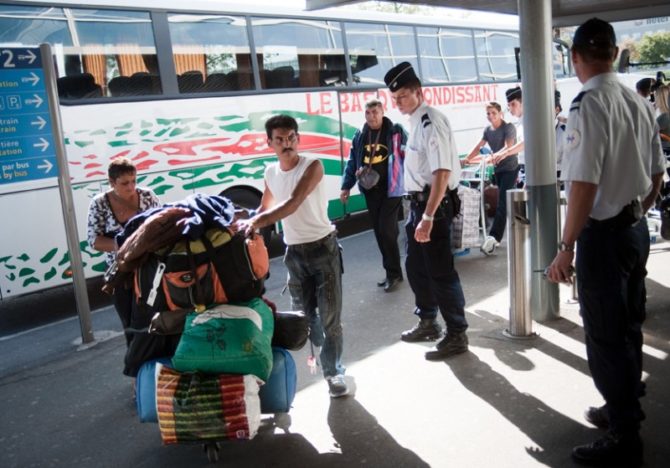The French-American Foundation Weekly Brief

France
After accepting monetary aid of 300 euros each and 100 euros for each child, dozens of Roma in France boarded a flight to Bucharest on Thursday, August 19, in the first round of a controversial plan to send Roma back to Romania. France is currently home to about 15,000 Roma. According to the AFP, Interior Minister Brice Hortefeux announced that 51 illegal Roma camps had been raided, and that about 700 more deportations would follow by the end of the month. Time reported that opposition politicians condemned the deportations, warning of falling back on the Roma as familiar scapegoats in France, while the Financial Times said even some members of Sarkozy’s own UMP party were criticizing the policy. The Nouvel Observateur noted that because the Roma are citizens of the European Union, there is nothing to keep them from returning to France in the future.
Various international academics and authors sent a letter to Nicolas Sarkozy published in Libération asking that France repay the “independence debt” it required of Haiti nearly 200 years ago. Haiti had paid a total of 90 million gold francs when it stopped payments in 1947, down from the original 150 million French King Charles X demanded following Haiti’s successful slave revolt in 1791. Today, that sum is valued at $21 billion, an amount the letter’s authors say would cover Haiti’s rebuilding costs in the wake of last winter’s devastating earthquake. The group of writers-that includes French philosopher Jacques Rancière, European politician Daniel Cohn-Bendit and American linguist Noam Chomsky-noted that when the Haitian government, led by then-President Jean-Bertrand Aristide, made a similar request in 2003, “the French government responded by helping to overthrow that government.”
French Education Minister Valérie Pécresse announced on Wednesday, August 18, that French universities had voted in favor of an extension of the university school year from nine to ten months, Le Figaro reported. While the minister highlighted various benefits of the plan-including a greater abilty to support students-Jean-Baptiste Prévost, president of the student union UNEF, said that the so-called extension will not change much, as 75 percent of students are already on a ten-month schedule. And Prévost noted that government scholarship disbursements are still based on a nine-month calendar, even though President Sarkozy had promised in late 2009 to extend the scholarships to ten months.
Beleaguered website France.fr finally launched following a month offline after its initial July 14 launch ended in failure due to technical problems. According to Le Parisien, the total government cost for the website could reach nearly 4 million euros. Government officials immediately disputed that figure, arguing that nearly a million euros have been spent on the site so far and that the maximum possible cost to the State over the next three years was 3 million euros. Connexion reported that the site, which contains 3,000 pages and 12,000 external links, plans a second launch in November to add more “community features.”
Gabonese President Ali Bongo announced the end of “exclusive relations” between France and Gabon-a former French colony-on Wednesday, August 18, several days after signing a series of deals with firms in other countries, including Singapore and India. Bongo was elected last August, succeeding his father Omar, who ruled Gabon for more than 41 years and was a major representative of “Françafrique,” the term used for France’s special relationship with its former colonies. Speaking on Gabon’s evolving relationship with France in an interview with Le Parisien, Bongo said: “The past is behind us…The fault of the colonizer, that’s over. We don’t blame anyone. The Gabonese have to take their destinies into their own hands.” On Tuesday, Gabon celebrated 50 years of independence from France.
See also:
– Newsweek rated world countries on economic, political, health and quality of life criteria. Finland ranked first, with the United States 11th and France 16th. Profiling notable world leaders, the magazine called out Nicolas Sarkozy for his ability to marshal world action on a variety of issues even as his domestic support has waned in recent months.
Share to: Facebook Twitter LinkedIn Email
Leave a reply
Your email address will not be published. Required fields are marked *



